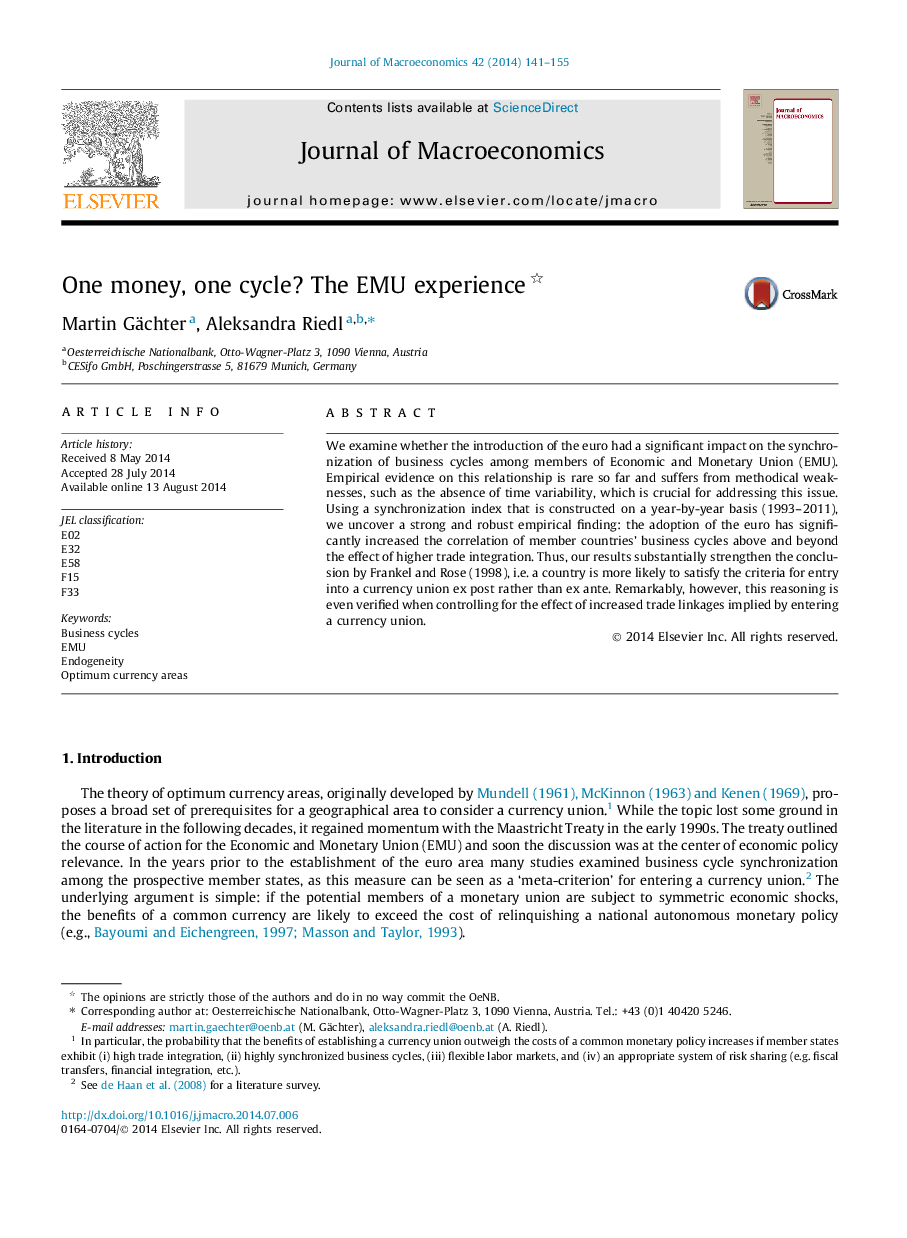| Article ID | Journal | Published Year | Pages | File Type |
|---|---|---|---|---|
| 965274 | Journal of Macroeconomics | 2014 | 15 Pages |
Abstract
We examine whether the introduction of the euro had a significant impact on the synchronization of business cycles among members of Economic and Monetary Union (EMU). Empirical evidence on this relationship is rare so far and suffers from methodical weaknesses, such as the absence of time variability, which is crucial for addressing this issue. Using a synchronization index that is constructed on a year-by-year basis (1993-2011), we uncover a strong and robust empirical finding: the adoption of the euro has significantly increased the correlation of member countries' business cycles above and beyond the effect of higher trade integration. Thus, our results substantially strengthen the conclusion by Frankel and Rose (1998), i.e. a country is more likely to satisfy the criteria for entry into a currency union ex post rather than ex ante. Remarkably, however, this reasoning is even verified when controlling for the effect of increased trade linkages implied by entering a currency union.
Related Topics
Social Sciences and Humanities
Economics, Econometrics and Finance
Economics and Econometrics
Authors
Martin Gächter, Aleksandra Riedl,
